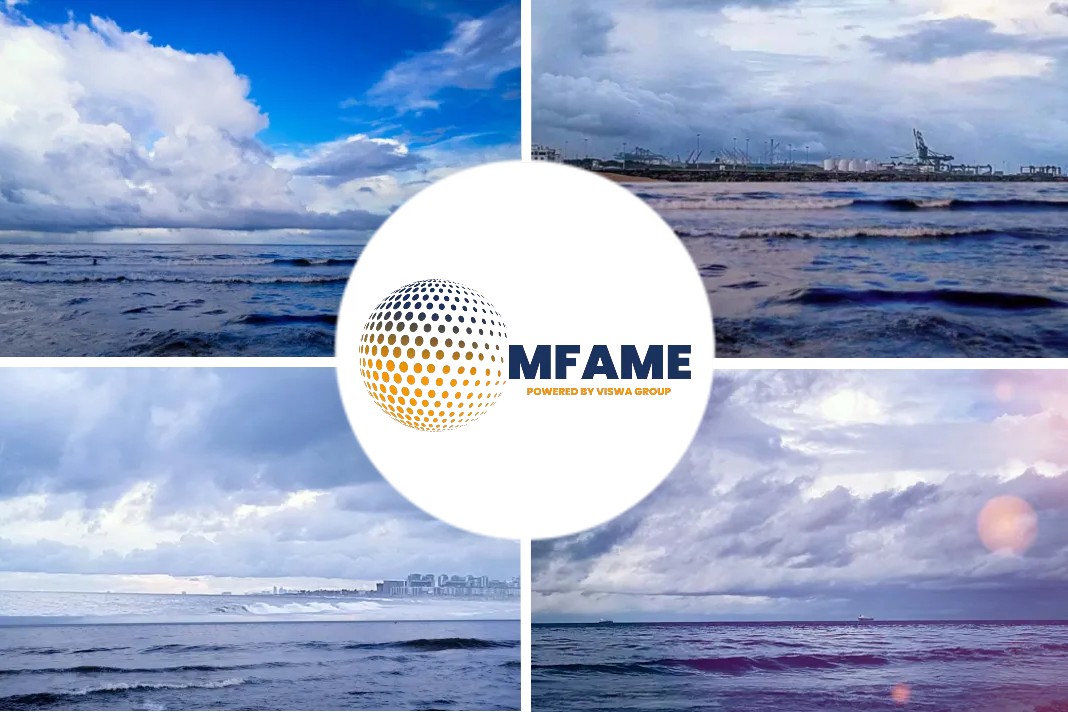In a major development, INTERCARGO re-iterated its commitment to a safe, efficient, high quality and environmentally sound dry bulk shipping industry in their Annual General Meeting, Executive and Technical Committes’ meetings in Athens held between 3-4 October 2019, says a press release published on their website.
In the meeting, a document was released to advocate guidance to shipowners in the form of 2020 Impact Analysis.
The meetings were presided over by Chairman Dimitrios J. Fafalios, Vice Chairman Jay K Pillai, Vice Chairman Spyros Tarasis, and Technical Committee Chairman Tom Keenan.
View on 2020
In view of the 0.5% global sulphur limit regulation implementation on 1 January 2020, INTERCARGO noted that the global availability of safe compliant fuels remains a key question that is largely still unanswered – especially for ships in the dry bulk tramp trades. INTERCARGO’s Chairman Mr Dimitrios J. Fafalios added that INTERCARGO will continue efforts to highlight critical aspects of the 2020 sulphur limit regulation implementation.
Areas of concern include de-bunkering non-compliant fuel in those cases when fuel has been taken in good faith as per BDN, only to learn that it is non-compliant after analysis and the Port State Control response in those instances.
As it would be unacceptable to have even one ship drifting without power on the high seas as a result of the above, it was agreed that INTERCARGO should continue to raise its concerns at the highest level with the IMO Member States, the fuel supply industry (involving oil refineries, bunker suppliers) and charterers, so that the practical challenges to be faced before and after 1 January 2020 are duly addressed. INTERCARGO regrets that the fuel supply industry has been unable to provide sufficient quantities of representative compliant fuels at an early enough stage for reliable testing on board. This situation creates significant safety implications for the operation of ships.
Senior Members of the Association said “We have been doing everything in our power to be ready, but we still face uncertainty. With vague fuel supply prospects and standards, no real support from the machinery manufacturers and a lot of advice and guidance offered only on paper, shipowners are left to cope with the practical challenges on their
own.”
Views on GHG Emission Control
Dry bulk shipping’s energy efficiency is amongst the best in the business but it must improve further. INTERCARGO supports IMO’s initial strategy for the reduction of Greenhouse Gas (GHG) emissions from ships.
In the short term, measures will need to respect each shipping sector’s characteristics and be equitable. It is crucial that charterers are engaged, as they are responsible for how ships are utilised. In the longer term, adequate, safe, innovative technological solutions will be needed, which are non-existent yet. GHG emissions largely depend on the design and the technology of the constructed ships, their engines and machinery, and the fuels used for propulsion.
Therefore shipbuilders, engine manufacturers, and fuel suppliers must be fully engaged in the successful implementation of IMO’s vision for 2050.
High on the dry bulk shipping agenda:
The Safe Carriage of Cargoes, the Investigation of Bulk Carrier Casualties, Ship
Design standards, and Ballast Water Management were also high on INTERCARGO’s agenda.
INTERCARGO expressed its utmost concern, as moisture related cargo shifting, widely known as liquefaction, continue to result in losses of ships and lives of innocent seafarers. Against a frustrating lack of consolidated efforts and commitment from all stakeholders including shippers, receivers and Port State authorities at loading and discharging ports to eliminate the problem, it is imperative that the minimum obligations as required by the IMSBC Code are fulfilled.
The importance of investigating incidents and the subsequent publication of quality casualty investigation reports in a timely manner, cannot be overstressed.
INTERCARGO urges all relevant administrations, that have not done so, to complete their incident investigations and publish the reports.
INTERCARGO also invites IMO to establish an effective system for this purpose.
Quality & Operational Excellence of INTERCARGO Members
INTERCARGO’s Membership has maintained a solid growth. The latest count comprised 142 Full Members with 2,252 bulkers entered with the Association, with a total capacity of 214 mil dwt i.e. about 20% basis numbers of vessels and 25% basis dwt of the global dry bulk carrier fleet.
The annual monitoring of their performance demonstrates, for one more year, that Members’ vessels outperform industry averages in respect of both detentions and deficiencies per inspection. 79 Associate Members also support the Association.
INTERCARGO published an Annual Review, which is available here.
Secretary General Dr Kostas G. Gkonis said “The Association’s Membership has practically doubled over the last three years. INTERCARGO now represents at least a quarter of the global dry bulk fleet offering a quality badge widely recognised by the industry.”
INTERCARGO will hold its next semi-annual meetings in Singapore in March 2020.
Did you subscribe to our daily newsletter?
It’s Free! Click here to Subscribe!
Source: InterCargo























